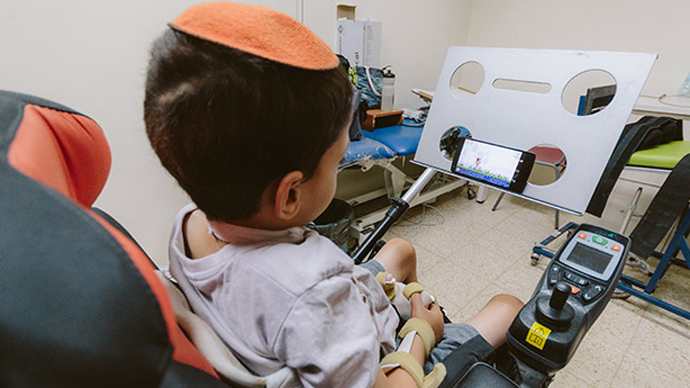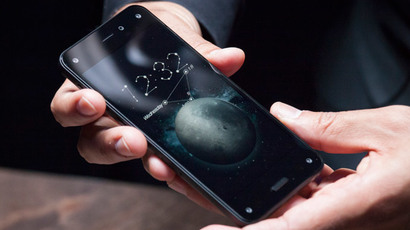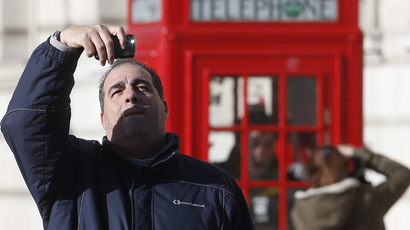‘Play Angry Birds hands-free’: Startup develops head-controlled phone for disabled

An Israeli tech startup has opened a campaign on crowdfunding site Indigogo asking to help launch a voice-activated, head-controlled smartphone set. The invention will allow those who have no use of hands to control touchscreen devices.
“Smartphones bring the world to us. But for people with disabilities, current smartphone technology falls short,” says a statement from the makers of 'Sesame,' named after the phrase that magically opened the treasure cave in the fairy tale Ali Baba and the Forty Thieves.
The technology uses a voice command to activate the program, and a front facing camera to detect the head movements of users, which it turns into cursor movements on the screen of the phone. It currently works only with Samsung Nexus phones.
“We decided to apply our skills to empowering people of all physical abilities to with greater independence, privacy, and connectivity,” the statement says.
A recent demo in front of a Wired journalist showed that while the basic mechanism works well, the software still needs polishing, and the phone crashes often. At the time of publication, people had pledged more than US$16,000 towards the $30,000 target which the makers believe is necessary to take their product to the consumer.
As an able-bodied young man, developer Ben Dov never thought of the hands-free technology in the context of disability. But he says that after he presented a new no-touch mobile phone game on Israeli television, he received a personal call from someone in no mood for play.
The call came from Giora Livne, a former Israeli navy commander who became quadriplegic seven years ago. The older man, also a trained engineer, immediately spotted the niche, as well as the powerful potential of the technology for people who cannot effectively make the fine movements required to operate a modern phone.
“Could you make a smartphone that I could use?” Livne asked, according to Dov.
And that’s how an unlikely business partnership was born.
Moving beyond trying to use it on just the two of them, the men have recruited several people with varying disabilities to fine-tune the technology, as the movements of someone with Parkinson’s are not the same as those of cerebral palsy sufferers.

But one of the most rewarding groups to work with is children, who often feel left out if they are unable to take part in popular trends – including smartphones and games. One of the youngest test subjects has become addicted to the avian-flinging game Angry Birds, which can be played with Sesame.
“At one point he went into my account and tried purchasing more birds. I was like: 'Hey!' It was impossible to take the device away from him,” Dov told Wired.
The company is now trying to focus on lowering the imposing $900 price of the new phone, though the makers believe that most people should find the quality of life improvement to be well worth it – even with the current price tag.
And while it may appear like a left-field project, it is actually needed by a surprisingly large number of people; six million people suffer from some form of movement disability in the US alone, according to the Reeve Foundation.
For Dov, the suddenly discovered importance of his work has been transformative.
“It’s a project that’s really close to my heart. Giora’s not a family member or anything, but just knowing I have the skills that could help someone like him, it’s become a calling,” he said.














